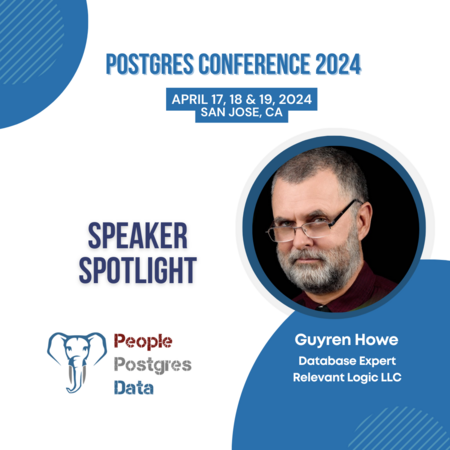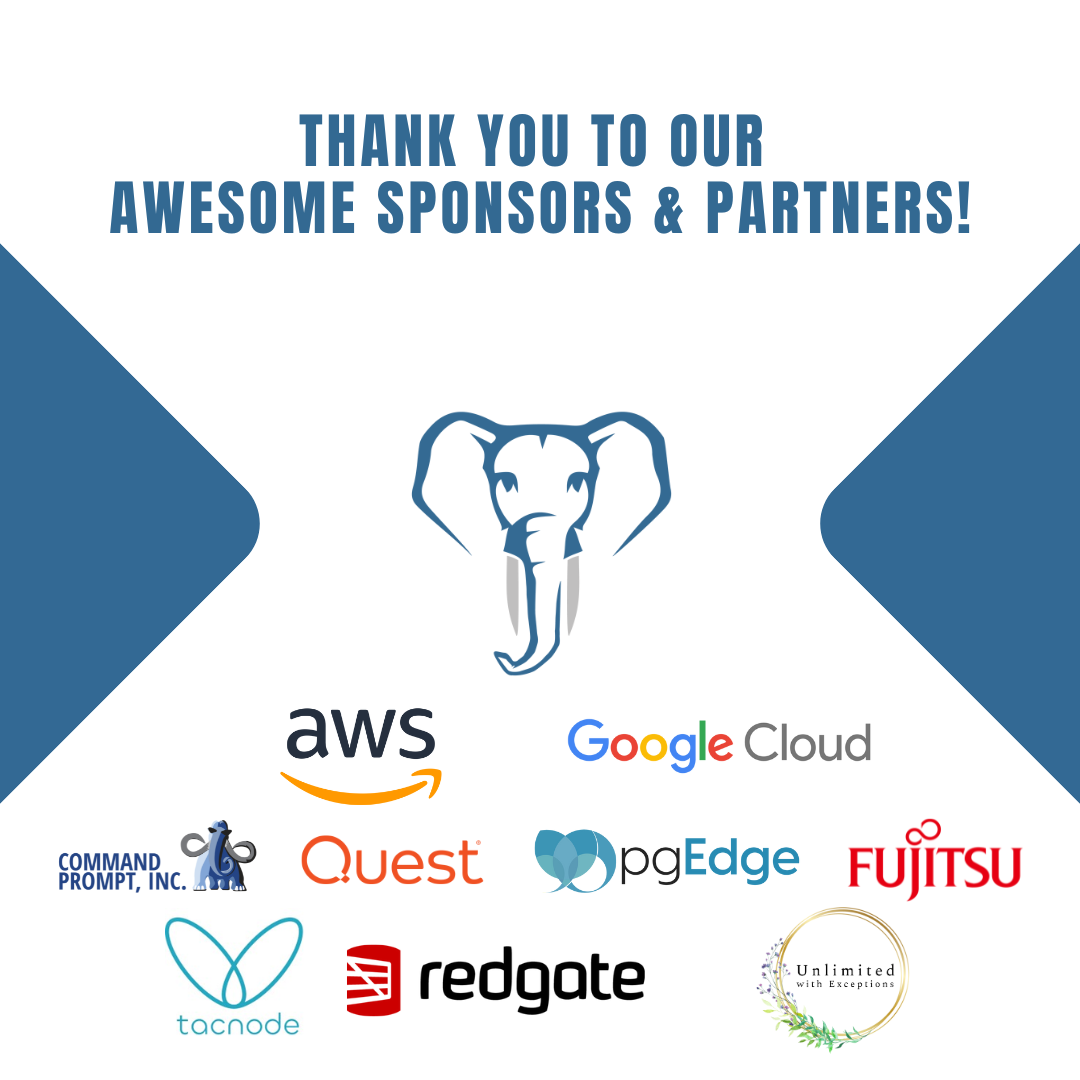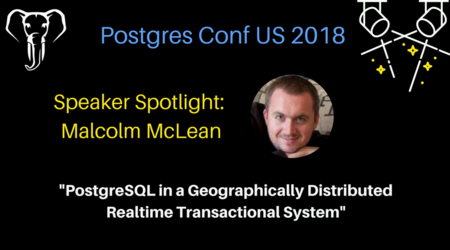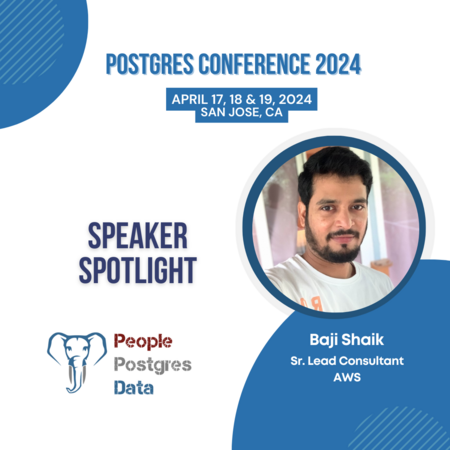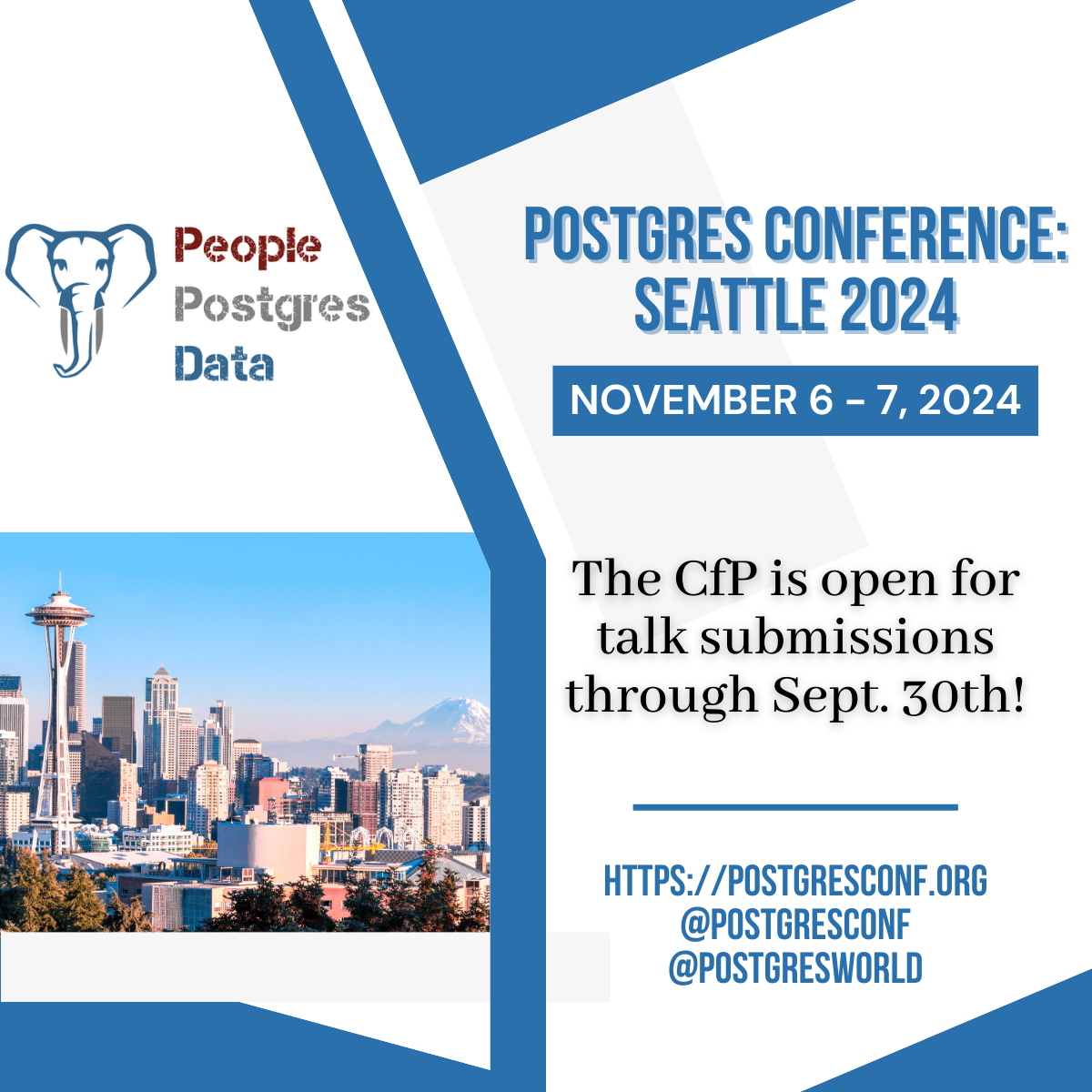
Call for Speakers: Join Us at Postgres Conference Seattle 2024!
We are excited to announce that the Postgres Conference Seattle 2024 is accepting speaker submissions! This is your chance to share your knowledge, insights, and experiences with the global PostgreSQL community in one of the world’s most innovative tech hubs. Whether you're a seasoned PostgreSQL expert or have unique insights on emerging trends, this is the perfect stage to amplify your voice and make an impact.
Why Speak at Postgres Conference: Seattle
As the largest PostgreSQL gathering in the U.S., Postgres Conference: Seattle 2024 brings together users, developers, DBAs, and thought leaders from diverse industries including FinTech, HealthTech, EdTech, and more! Here’s why you should consider submitting a proposal:
- Expand Your Reach: Presenting at the conference will allow you to connect with hundreds of like-minded professionals, influencers, and companies shaping the future of data management.
- Share Your Expertise: Whether you're a PostgreSQL guru or a curious learner with unique insights, your contribution can help others grow in their own Postgres journey.
- Professional Recognition: Gain visibility and recognition within the Postgres community and broader tech industry. Being a speaker enhances your profile and can open doors for future collaborations, partnerships, or even job opportunities.
- Contribute to the PostgreSQL Ecosystem: PostgreSQL continues to evolve rapidly. By sharing your experiences, you contribute to the collective growth and innovation of this incredible open-source database system.
Tracks for Every Interest
We’re looking for speakers across various areas of expertise. If you work in development, operations, or the essential aspects of PostgreSQL usage, we want to hear from you! Here’s a quick overview of our three main tracks:
Development (Dev) Track
Do you have cutting-edge insights on PostgreSQL development? This track is for talks focused on building, optimizing, and scaling applications using PostgreSQL. Some of the topics you could cover include:
- Query optimization and performance tuning
- Building and deploying PostgreSQL-based applications
- Best practices in database schema design
- Case studies of innovative solutions using PostgreSQL
Whether you're diving into PL/pgSQL, extending Postgres with custom functions, or exploring advanced indexing techniques, this is the perfect platform to share your expertise with fellow developers.
Operations (Ops) Track
If you’re working behind the scenes, ensuring that PostgreSQL environments are secure, scalable, and high-performing, the Ops track is for you. This track seeks submissions from database administrators, SREs, DevOps engineers, and anyone involved in the operational side of PostgreSQL, such as:
- Scaling PostgreSQL for high-traffic applications
- Backup and recovery strategies
- Monitoring and observability tools
- Managing multi-region or cloud-based Postgres instances
Share your experience on how to keep PostgreSQL running smoothly, even under the most demanding conditions.
Essentials Track
The Essentials track is perfect for those who want to speak about the core foundational aspects of PostgreSQL. It’s an ideal opportunity to present content geared toward people who are new to PostgreSQL or seeking to deepen their understanding of its key concepts. Suggested topics might include:
- Introduction to PostgreSQL for beginners
- SQL best practices and optimization
- Setting up a robust PostgreSQL environment
- Security fundamentals for database management
This track encourages first-time speakers and practitioners who want to help others navigate the essentials of working with PostgreSQL.
How to Submit Your Proposal
Submitting a proposal is easy! Simply prepare an abstract that describes your talk, its relevance to the conference tracks, and what attendees will take away from it. We encourage submissions from individuals of all backgrounds and levels of experience. Diversity of thought and experience enriches the conversation, and we welcome fresh perspectives.
Create a user account and submit your abstract, title, and description for review consideration.
Take this opportunity to shine as a thought leader in the Postgres world. Share your journey, inspire innovation, and connect with a vibrant community that’s as passionate about Postgres as you are. Submit your proposal today and join us in Seattle for an unforgettable experience!
Important Dates:
Submission Deadline: Monday, September 30th, midnight Pacific Time/ 3 am ET
Event Dates: November 6 - 7, 2024
Ready to Submit?
To submit your proposal and find more details, head to our submission page. Questions can be directed to organizers@postgresconf.org. We look forward to seeing you in Seattle!
We can’t wait to hear from you. Let’s shape the future of Postgres together!
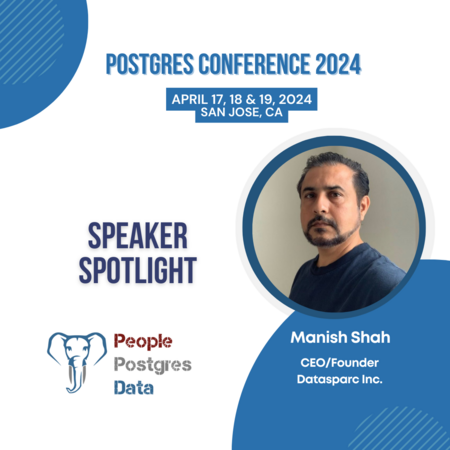

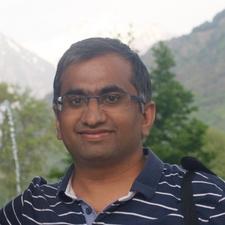
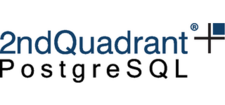
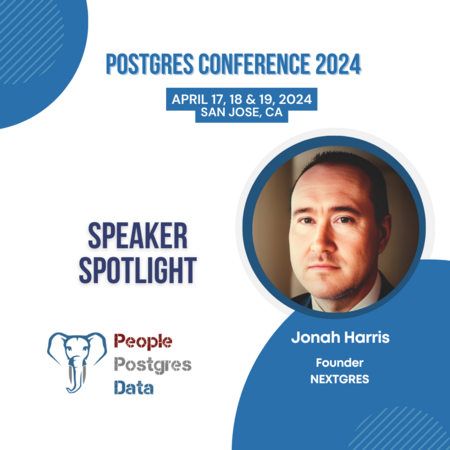 <
<